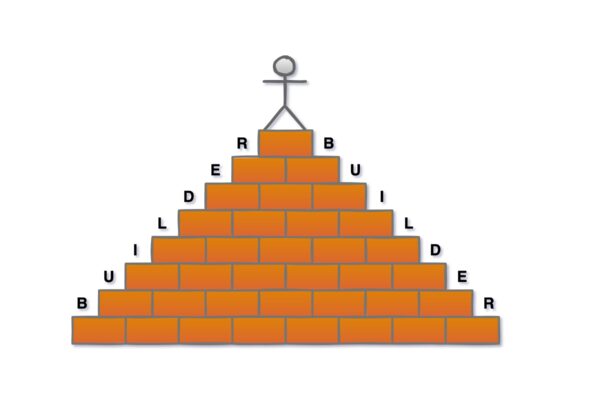Why growing new talent is important
Companies and businesses are built and run by people, none of the companies will exist without people who dedicate their time, effort and talent to start and later move the company forward. Therefore, it is vital for a company to invest in people to secure long term success.
One form of investing in people is to acquire best talent available on the market, the other options is to grow talent withing the company. As you may guess from the title, we are going to concentrate on growing talent as it is one of the most important priorities for a company’s leadership. Unfortunately, it is not an easy task.
In order to grow new talent a company needs people who are competent of doing so (we may call them mentors), people who not only poses technical skills and share company’s values, but have strong soft skills, in other works who are social intelligent and are capable of perceiving other people.
I do strongly believe that mentors are not born, they are grown and anyone can develop necessary soft skills to become a successful mentor. So, given you have strong technical skills that you use to propel your own career; would you like to help other to develop their career as well? Would you like to become a mentor?
How to become a mentor
If the answer is yes, then what do you need to do? Where to start? What are the steps?
First, if you would like to teach other people how to be successful in their field, you need to be proficient in the field yourself, aka be an expert and have all necessary technical skills. If you’ve been a practitioner in the field for significant amount of time, then you are highly likely have enough expertise to qualify.
Second, you need to develop social intelligence and work on yourself focusing on personal growth. This means learning how to effectively communicate with other people, being able to read others’ emotions, exercise active listening and so on.
Third, you will need to acquire some leadership and management skills, for example being able to plan for other people, seeing bigger picture, knowing when to course correct, reward or reprimand.
There are many books and articles written around self-growth and leadership. Sometimes it feels like too much, so it is challenging to find the right book or resource. My strategy to learning is to figure out what exactly I need to learn, compile a list of books around the subject, then read reviews and ratings for each book and sort them from best to worst using my own criteria that is relevant at the moment. Then it all boils down to selecting a book or few from the top of the list and work my time through each.
It is important to understand that we do not become mentors overnight, rather it is a path that requires three thigs: practice, learning theory and more practice.
Fortunately, you don’t have to be “level 10” and have all the necessary skill before you start mentoring others. It’s acceptable to start small and work the way up learning while you go. Of course, solid foundation is required, however you don’t have to be absolutely superior than your mentee, in fact mentors learn as much from mentees as mentees from mentors.
Practical advice how to mentor other
To get started, here are few practical tips that you may employ at day one.
- Be honest and genuine. If you feel threatened or insecure to give away information, then do not stop learning, improve yourself, get new skills so that you will no longer feel threatened or insecure.
- Build trust. This is most important first step. Without trust nothing else makes sense nor will work.
- Genuinely wish best to another person, your mentee.
- While mentoring, begin preparing a development strategy based on the mentee’s personal interests, goals and circumstances.
- Constantly feed a mentee with stretch goals or tasks, the one that are slightly harder than they are comfortable with. This will keep them interested but not overwhelmed.
- Help to build confidence. Mentees that believe in their own abilities excel significantly faster.
- Provide freedom to make mistakes within safe boundaries. This limits negative effect in case of failure, but also provides freedom of choice and promotes creativity. Make sure to constantly reevaluate boundaries and expand when necessary.
- Foster feeling of ownership of product they work on.
- While providing feedback, try to be precise and very specific.
- If something wrong happens, reprimand fast and privately. Criticize actions not personality. Be specific and provide a path to course correct.
- Praise genuinely and on public. Be specific with your praises.
Thanks for your attention!
Hope provided information was helpful and now you feel empowered to get you mentor’s career started. If you have further questions of comments, please feel free to express it in the comments below.





